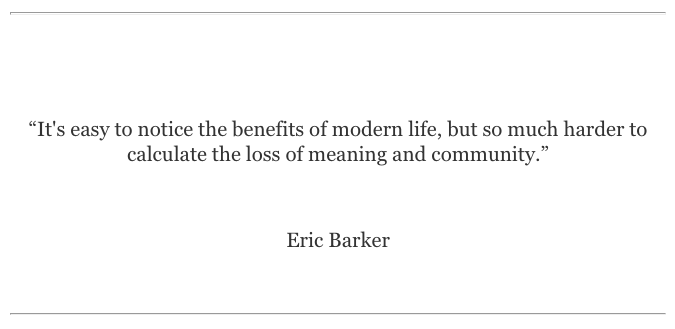I have been following Eric Barker’s blog, “Barking Up the Wrong Tree,” for years and have thoroughly enjoyed his writing. When his new book, “Plays Well with Others: The Surprising Science Behind Why Everything You Know About Relationships Is (Mostly) Wrong” came out (I highly recommend this book), I was lucky enough to have him on the podcast to discuss the new release.
I will have to admit that I hadn’t read the book in its entirety, but I thoroughly enjoyed the conversation and wanted to give the book time to marinate in my head. Much of it pushed me but also realigned some of my hopes for education and how we use technology in meaningful ways.
Many people do not know this about me, but when I first became an Assistant Principal, I was adamantly against technology. I had been a technology coordinator for years prior, but I struggled because I noticed that many times students were “dumped” off into a computer lab and were left to let the “computer” to teach them new concepts. It not only seemed a bit mindless but there was an obvious loss of connection, which pushed me away from the usage of technology in schools.
Only when I jumped in myself and started using social media to connect, learn, and have deep conversations with not only others but even myself, did I start to rethink my position. In fact, this blog I am writing right now is an example of one of those conversations that I am having with myself.
One of my favorite quotes is from Clive Thompson, where he states, “Having an audience can clarify thinking. It’s easy to win an argument inside your head. But when you face a real audience, you have to be truly convincing.”
Writing makes me think about the different perspectives others might have and how to address them. In some ways, I don’t feel comfortable presenting ideas at an event until I have had the opportunity to write them in this space. The opportunity to reflect internally helps me share externally.
But where I have struggled recently is with the idea of the “attention economy” and how people seem to create more to get noticed rather than to push their own thinking or the thinking of others. Are we becoming a world focused more on getting “clicks and likes” or about creating things of value, as well as community?
Here is something that is important to state; what I believe is worthy of attention can be different than your version, and vice-versa. I think this is more about how we work with students and model expectations than it is about our own perceptions. For example, I know this post won’t be shared as much because of length, whereas a tweet or 15-second video has more of an opportunity to be shared repeatedly. A lot of thought can go into 240 characters or a 15-second video, but do we re-share it more because we like the message or because it could also drive attention our way?
I don’t know. But I am writing it out to help clarify my own thinking.
Back to Barker’s book.
When he discussed the disconnect we are facing, he brought up how Amish communities often decide what technology they gravitate toward, and it made a ton of sense:
“They don’t eschew technology because they’re Luddites. They do adopt some of it, like tractors. How do they decide what gets approved and what doesn’t? By the effect it has on the closeness of the community. Tractors help you grow crops. Sounds good. But cars let people live farther apart. No bueno.
When Amish youth come of age, they participate in what is called “Rumspringa.” They don’t have to follow the rules and can live in the modern world for a while. They get a chance to see the other side. After a couple of years of this, they have to choose: modern world or Amish world? More than 80 percent choose to return and become Amish. And since the 1950s, the percentage that chooses Amish life has only been increasing.
It’s not enough to merely have face-to-face contact. We need a community.”
Eric Barker
This statement alone from Barker is a good way to discuss what technology we use in schools and in our own lives:
“How do they decide what gets approved and what doesn’t? By the effect it has on the closeness of the community.”
There is a lot to digest in that statement, but I think it is a great way to start or maybe even restart a conversation on not only what technology we utilize but how it is utilized.
Does it make us better?
Think deeper?
Connect?
This quote also resonated from Barker:

Technology should enhance face-to-face interaction, not replace it.
I am not saying that you can’t build community in meaningful ways through the utilization of technology. Many people have, including me. Some of my best friends in the world were once avatars on Twitter.
The focus should be, and continue to be, how we use technology to make our lives better, the lives of others better and bring the world closer together.
If that is the focus, then we will be on the right track.